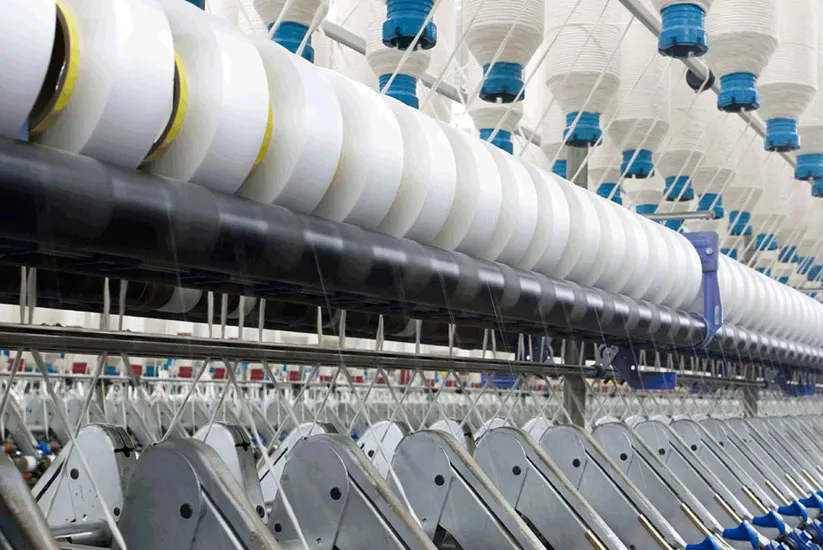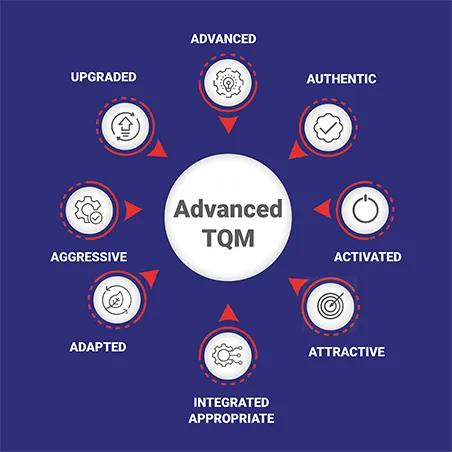
How Can You Identify A Green Belt?
October 18, 2017
The Importance Of Data Collection For The Six Sigma DMAIC Approach
October 31, 2017Are You Implementing TQM In Your Textile Business?
Japan experienced a spectacular economic growth in the 1950s by implementing Deming’s principles of Total Quality Management (TQM). America then rediscovered Deming in the 1980s with the help of quality management experts who contributed to the development of TQM theories, principles, and tools. And today, TQM is practiced in almost every field of business, may it be the manufacturing sector or service segment. It strives towards the achievement of quality that is in conformance to customer requirements. All processes within an organization are standardized and improvised with the implementation of TQM. This is why all kinds of big and small companies are approaching TQMI for providing their employees and managers with professional Quality Management System training in India.
Within the manufacturing sector, TQM starts by sampling a random selection of the product, which is tested for all the aspects that matter to the customers. The causes of any failures are identified, and appropriate actions are then taken to correct the errors. Such concept of quality control has been extensively accepted worldwide. One such sector is the textile industry, where TQM is applied in every field including fiber forming, spinning, knitting, weaving, and dyeing. Let us learn how this is done in detail.
Fiber Formation
This is the first step of any process in the textile industry where the initial fiber is formed for creating a fabric. Process control and process improvement are two important factors that need to be considered in this phase. With a metrics-based analysis, leading textile companies are forming extensive partnerships with customers who employ team concepts. The Quality Function Deployment (QFD) tool is used, which is a structured approach to define customer requirements and translate them into plans to produce products that meet those needs. The power of decision-making in this phase is given to an empowered operational level of employees.
Spinning
In yarn facilities, advanced TQM systems are required that include statistical process and quality control, and team development with technical certification. And for this, professional training and education is required within the organization. Here, extensive process improvement programs are established that are conducted by work teams and process improvement teams, set up based on the level of employee involvement. Also, customer satisfaction surveys and partnerships are employed.
Knitting
In the knitting industries, statistical process control and just-in-time manufacturing are highly important. These two tools are used to improve the manufacturing process. Quality audits are carried out to identify problems and take critical decisions. Specialized process improvement teams are formed to work in the process area.
Weaving
Here also, statistical process control is employed, along with value-added analysis. Customer service and quality are focused upon by special teams with a 24 hour customer service program, where any problems arising within the products are eliminated and resolved. Also, partnerships with customers are built.
Dyeing
Once again, statistical process control and value-added analysis are used here. And, adding to this, work-flow and cycle-time analysis are employed too to advance the TQM system further. Furthermore, cross-functional teams for customer service and quality improvement are also developed.
You can see how quality is maintained by implementing TQM in every phase of the textile industry. However, quality does not mean only the attributes of the fabric, it also relates to the consistency in meeting consumer demands. Quality plays a major role today, which makes quality management very important. And for this, active participation and support from the management is important to achieve high integrated quality. So, if you are in the textile industry too, make it a point to have your staff undergo Quality Management System training in India, and you will see the wonderful outcomes your business gets!





